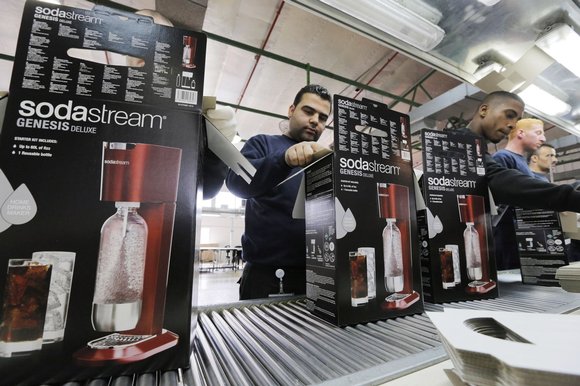-
Tips for becoming a good boxer - November 6, 2020
-
7 expert tips for making your hens night a memorable one - November 6, 2020
-
5 reasons to host your Christmas party on a cruise boat - November 6, 2020
-
What to do when you’re charged with a crime - November 6, 2020
-
Should you get one or multiple dogs? Here’s all you need to know - November 3, 2020
-
A Guide: How to Build Your Very Own Magic Mirror - February 14, 2019
-
Our Top Inspirational Baseball Stars - November 24, 2018
-
Five Tech Tools That Will Help You Turn Your Blog into a Business - November 24, 2018
-
How to Indulge on Vacation without Expanding Your Waist - November 9, 2018
-
5 Strategies for Businesses to Appeal to Today’s Increasingly Mobile-Crazed Customers - November 9, 2018
United Kingdom local councils, students to be banned from boycotting Israeli goods
TORY ministers were accused yesterday of supporting the illegal occupation of Palestine through plans to stop public bodies boycotting Israeli goods.
Advertisement
This legislation is aimed directly at the worldwide BDS (Boycott, Divest and Sanction) movement, which protests Israeli human rights abuses of Palestinians by organizing boycotts and other protests against companies that profit from products produced in the illegally occupied West Bank Israeli settlements, and encourages divestment from those companies that profit from doing business with the Israeli state.
Ministers said that any public bodies which continue to boycott such companies will be “severely punished”.
“Divisive policies undermine good community relations and harm the economic security of families by pushing up council tax”, he argued at the Tory conference in October.
A spokesman for Labour leader Jeremy Corbyn criticised the move, calling it “an attack on local democracy”.
Tim Hunt, director of Ethical Consumer Association, an organization that in the past has promoted boycotts of Israeli goods on ethical ground, slammed the measure as “an affront to the rights and dignity of Palestinians living in illegally occupied lands”.
‘This Government’s ban would have outlawed council action against apartheid South Africa.
In the UK, Leicester City Council passed a policy to boycott such goods in November 2014.
Advertisement
Labour said the Conservatives were attacking local democracy. But the Sunday Times reported it could also apply to universities and student unions. He added that the new guidance “will help prevent damaging and counterproductive local foreign policies undermining our national security”. “Ministers talk about devolution, but in practice they’re imposing Conservative Party policies on elected local councils across the board”, Corbyn’s spokesperson said. “It seems that for this UK Government, whatever crimes against worldwide law Israel commits, having a military ally trumps the rights of their own citizens and institutions in this country to support human rights”. “Where’s the incentive for companies to ensure there are no human rights violations such as slavery in their supply chains, when public bodies can not hold them to account by refusing to award them contracts?” The rules will allow the government to act against organisations that impose boycotts and make it easier for others to take such bodies to court. It was first announced in 2005, with Israel vigorously opposing it. That year the devolved government in Scotland issued a notice discouraging trade and investment with settlements by Scottish councils.





























